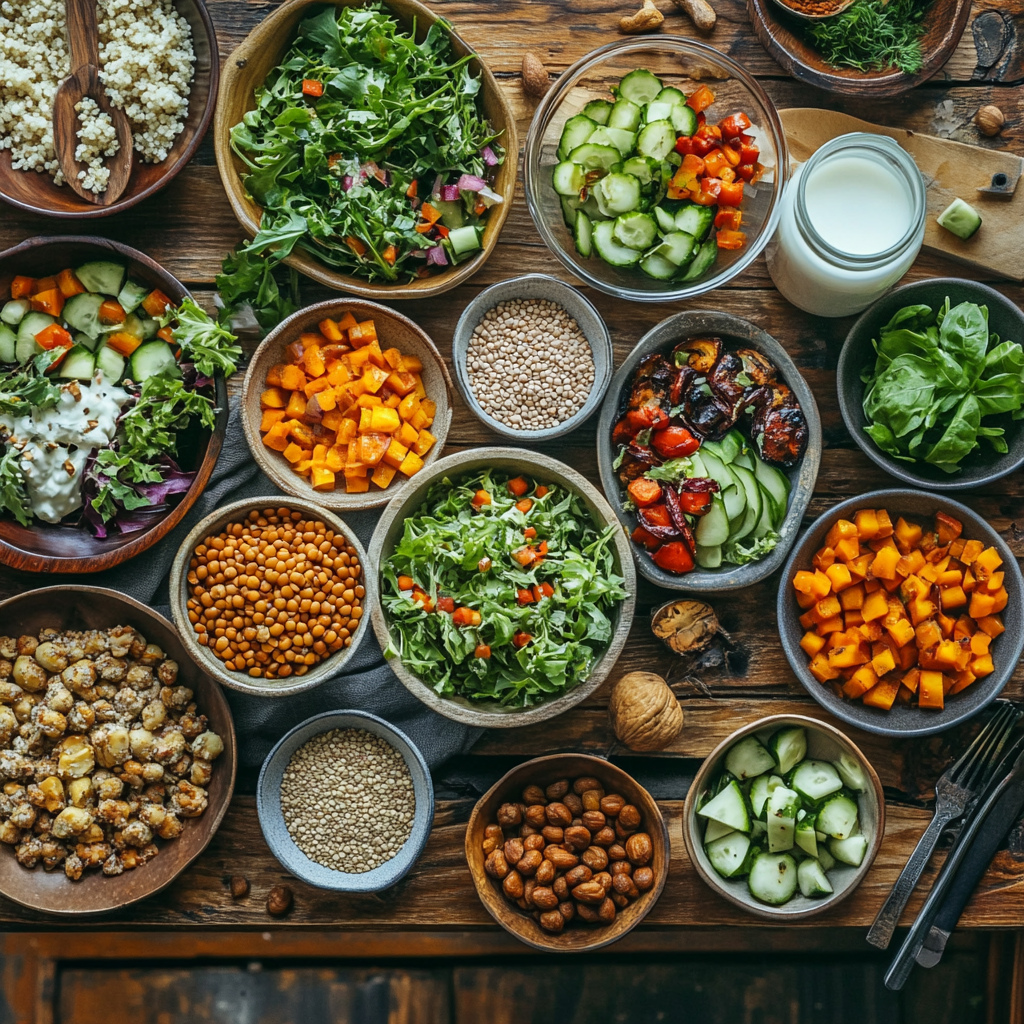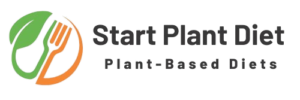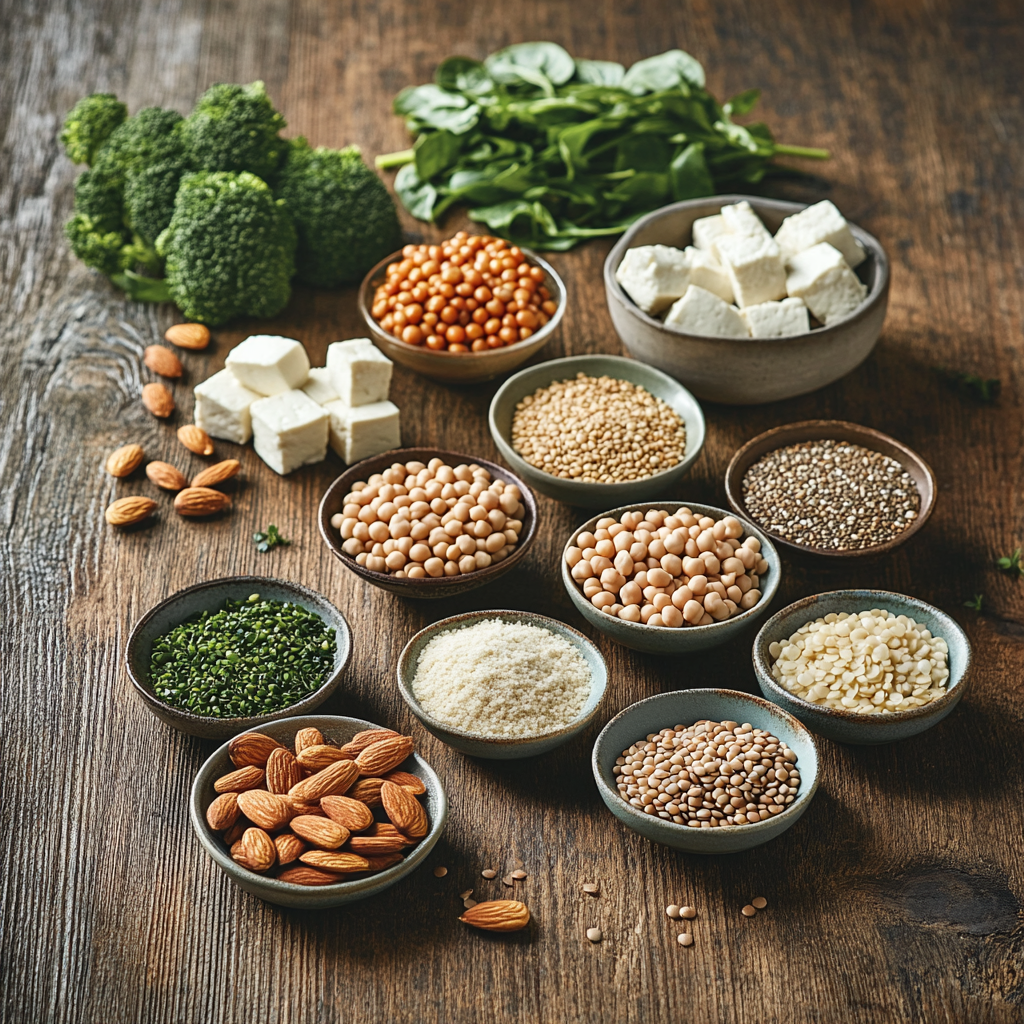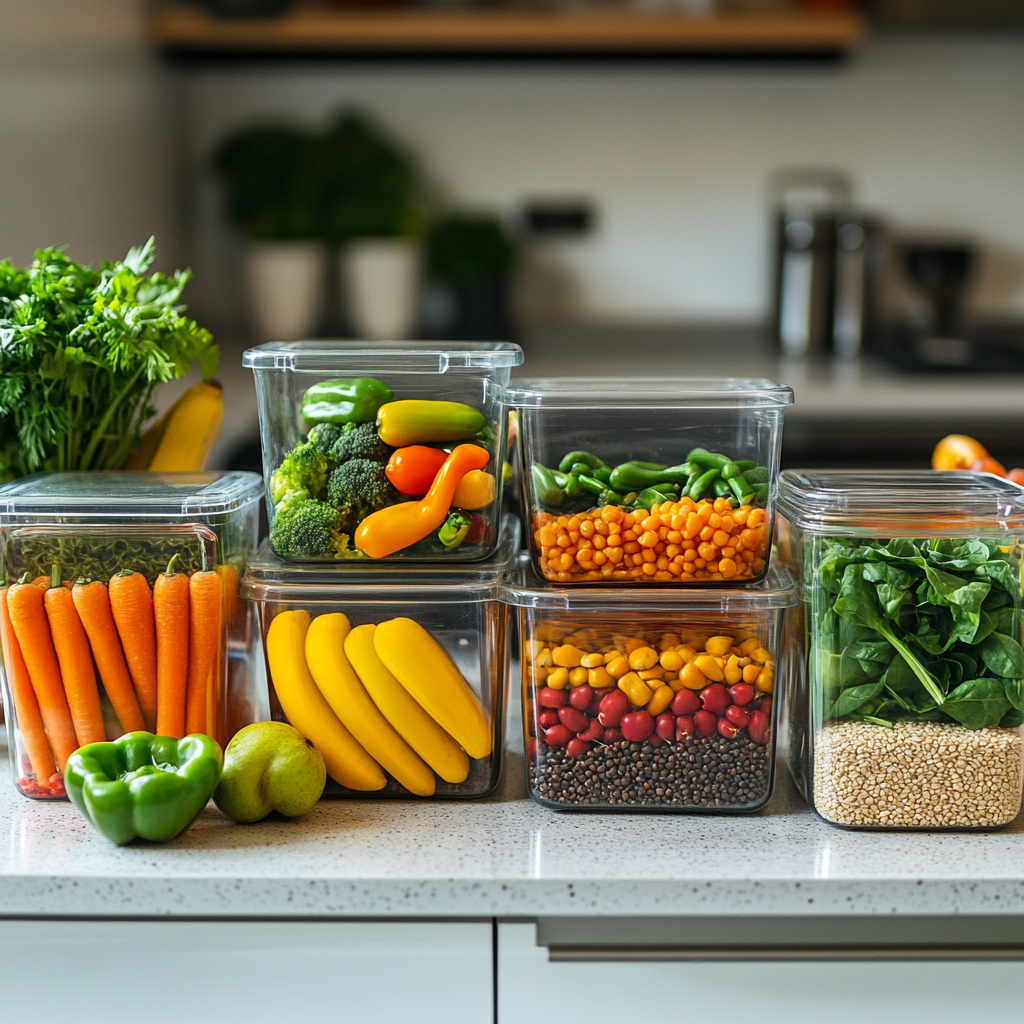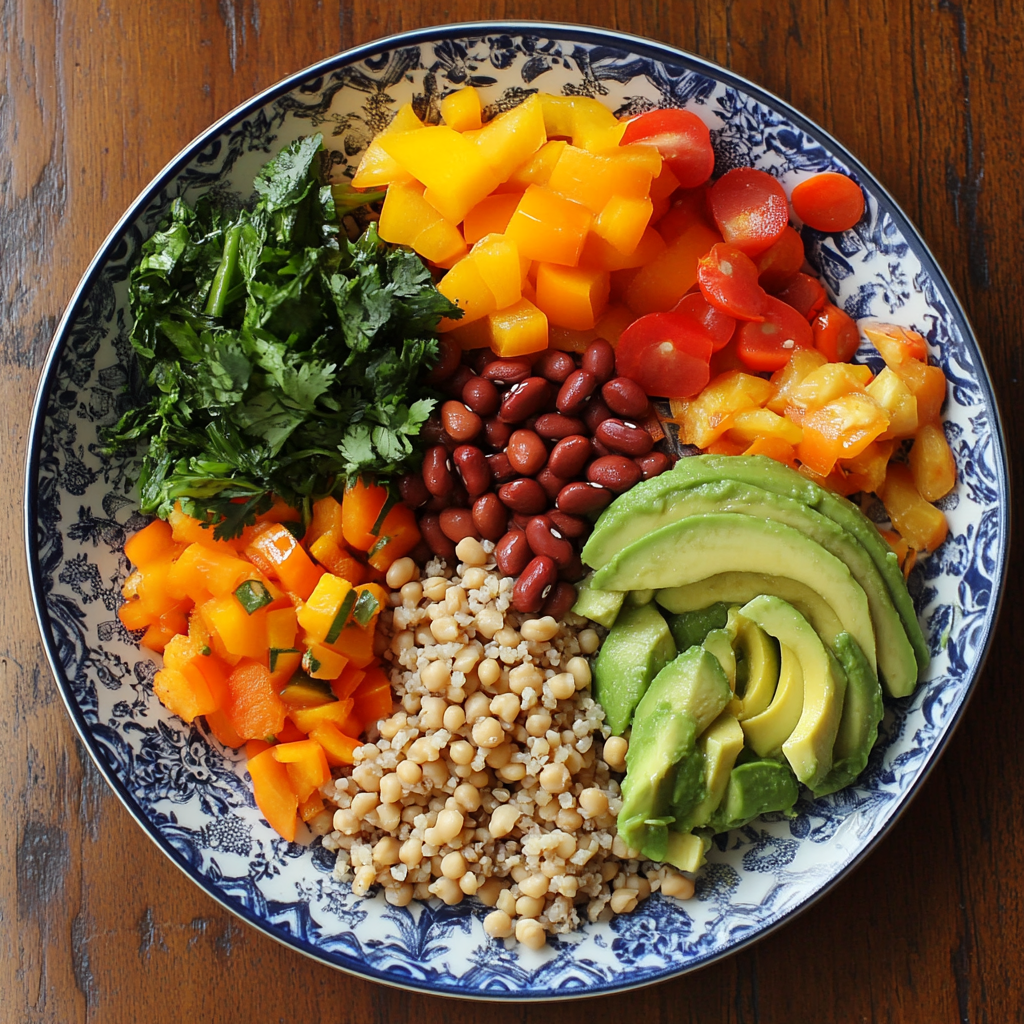A vegan diet has numerous other health benefits besides maintaining your overall well-being. A vegetarian diet naturally places more emphasis on green vegetables, fruits, legumes, and grains, and these are packed with adequate vitamins and minerals. Vegan Vitamins and Minerals are essential for boosting your immune system and giving you a productive day. A well-rounded vegan diet is rich in fiber, antioxidants, and phytonutrients. Yet, certain nutrients like Vitamin B12, Vitamin D, and Omega-3 fatty acids are less prevalent in plant-based foods, making supplementation or fortified options necessary. Similarly, important minerals like zinc, calcium, and iron need coordination for maximum absorption. Addressing these needs will help maintain immunity, overall health, and energy levels.
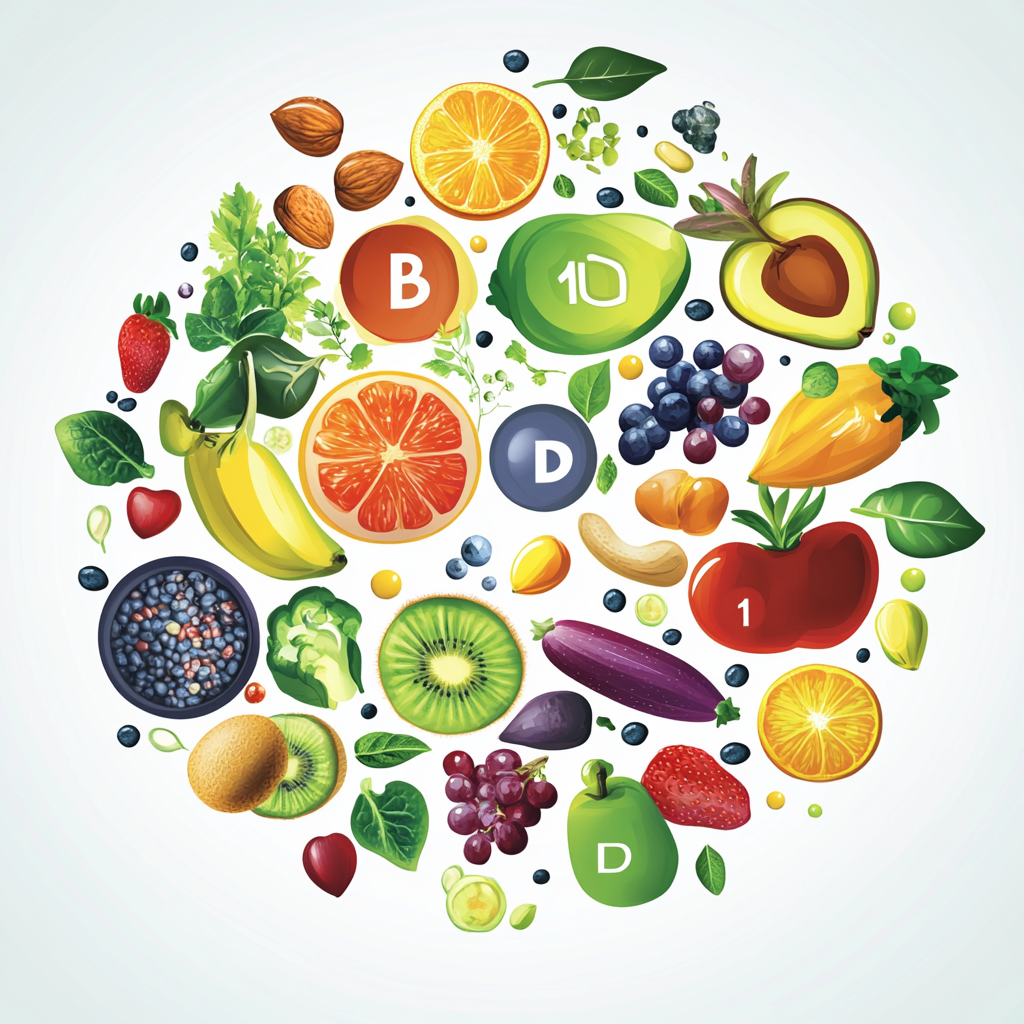 Key Vitamins for Vegans
Key Vitamins for Vegans
Vitamin B12
Vitamin B12 is very important for DNA synthesis, nerve function and red blood cell formation. But this vitamin we primarily notice in non-vegetarian foods. Among the plant-based foods it is found in are:
Fortified Foods : Cereals,nutritional yeast and most importantly Plant-based milk contain B12.
Supplements : A reliable vegan B12 supplement (cyanocobalamin or methylcobalamin) ensures consistent intake.
Vitamin B12 deficiency can lead to anemia or fatigue, so it is very important to take it.
Vitamin D
Vitamin D helps maintain bone health, calcium absorption and immune function.
Sources for Vegans
Fortified products like plant-based milk and orange juice.
Vegan-friendly Vitamin D2 or D3 supplements (made from lichen).
Tip: Aim for at least 15–30 minutes of sunlight exposure daily to boost natural production.
Omega-3 Fatty Acids
Omega-3s play a key role in brain function, heart health, and inflammation regulation.
Plant-Based Sources : Chia seeds, Flaxseeds hemp seeds and walnuts contain ALA (a precursor to EPA and DHA).
Algae-Based Supplements : It contains EPA and DHA which are essential for an ideal vegan diet.
While ALA is beneficial, the body converts only a small portion into EPA and DHA, making supplementation a practical choice.
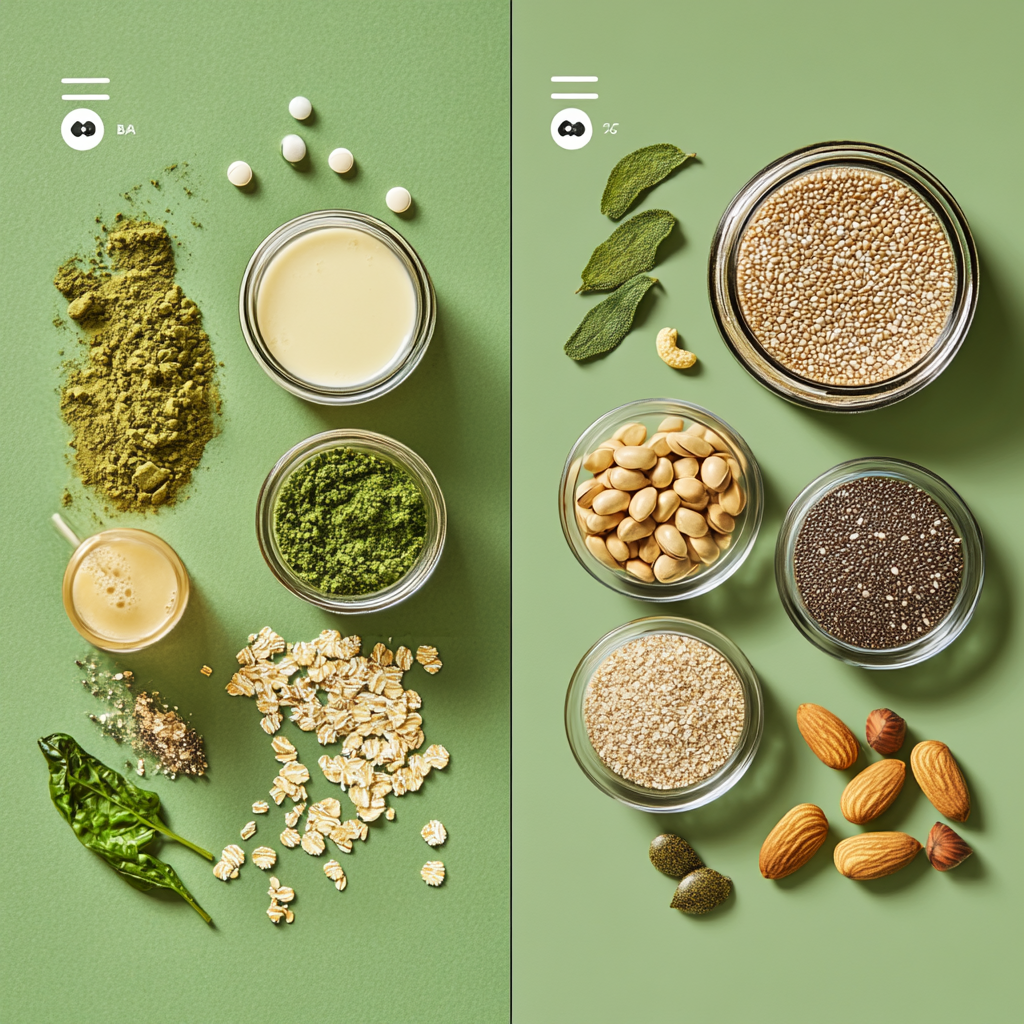
Vegan essential minerals
Iron
Iron is necessary for oxygen transport in the blood. Plant-based diets offer non-heme iron, which isn’t as easily absorbed as heme iron from animal products.
Sources: Lentils, chickpeas, spinach, tofu, quinoa, and pumpkin seeds.
Boost Absorption : Pair iron-rich foods with Vitamin C (e.g., bell peppers, oranges) to enhance absorption. Avoid tea and coffee around meals as they inhibit iron uptake.
Calcium
Calcium is essential for strong bones, muscle function, and nerve signaling. While dairy is the traditional source, vegans have plenty of options:
Plant-Based Sources: Kale, broccoli, bok choy, almonds, and fortified plant milk.
Supplements: Consider calcium supplements if dietary intake is insufficient.
Zinc
Zinc supports immune health, wound healing, and DNA synthesis. Vegans may need to consume more zinc due to lower bioavailability in plant-based foods.
Sources : Whole grains, legumes, nuts, seeds, and fortified cereals.
Tip : Soaking or sprouting legumes and grains can improve zinc absorption.
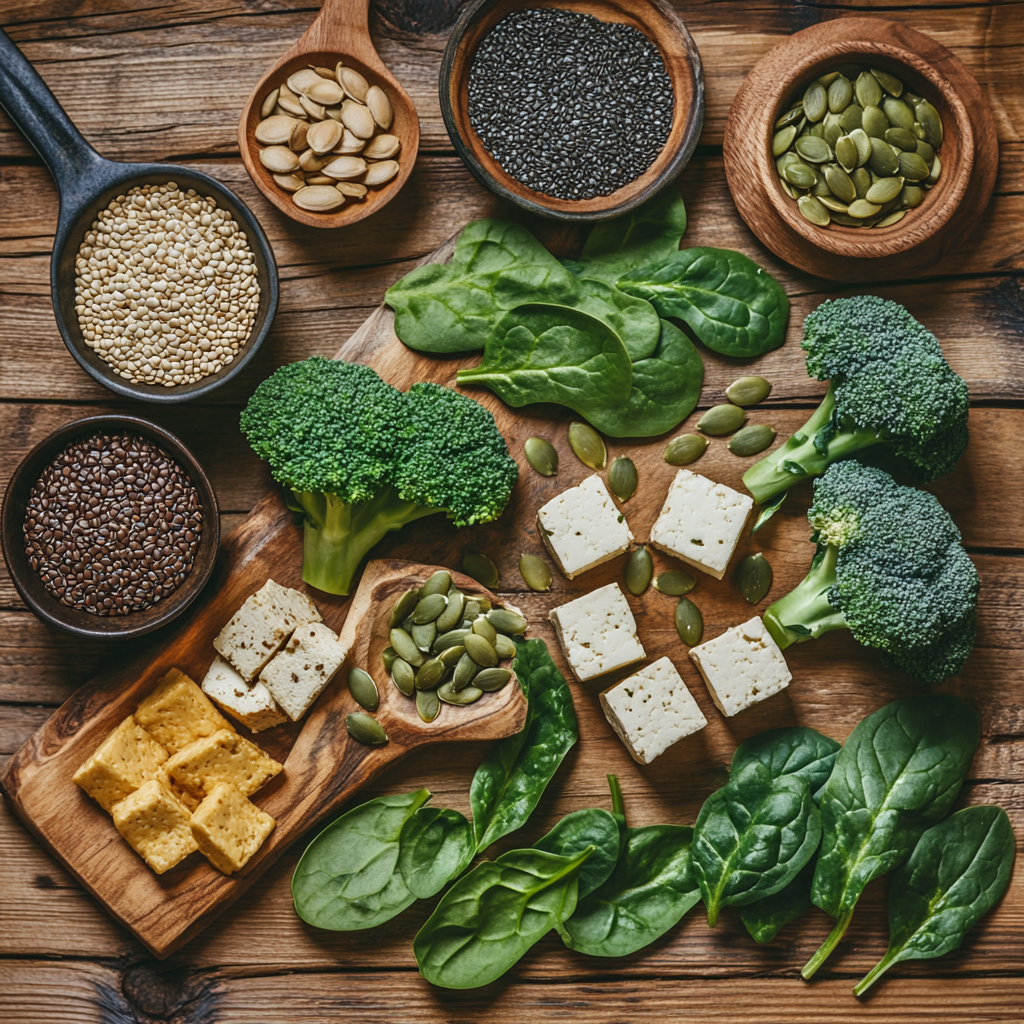
Food Sources for Vitamins and Minerals
Natural Vegan-Friendly Foods
Incorporating a diverse range of whole foods ensures a broad spectrum of nutrients:
Leafy Greens: Rich in calcium, iron, and magnesium.
Legumes: Packed with protein, iron, and zinc.
Seeds : Flaxseeds and chia seeds provide Omega-3s and minerals.
Nuts: Almonds and walnuts contribute to calcium and healthy fats.
Fruits: Citrus fruits, berries, and bananas add vitamins and antioxidants.
Fortified Foods and Supplements
Fortified foods play a critical role in a vegan diet by filling potential nutrient gaps. Look for products fortified with:
Vitamin B12
Vitamin D
Calcium
Iron
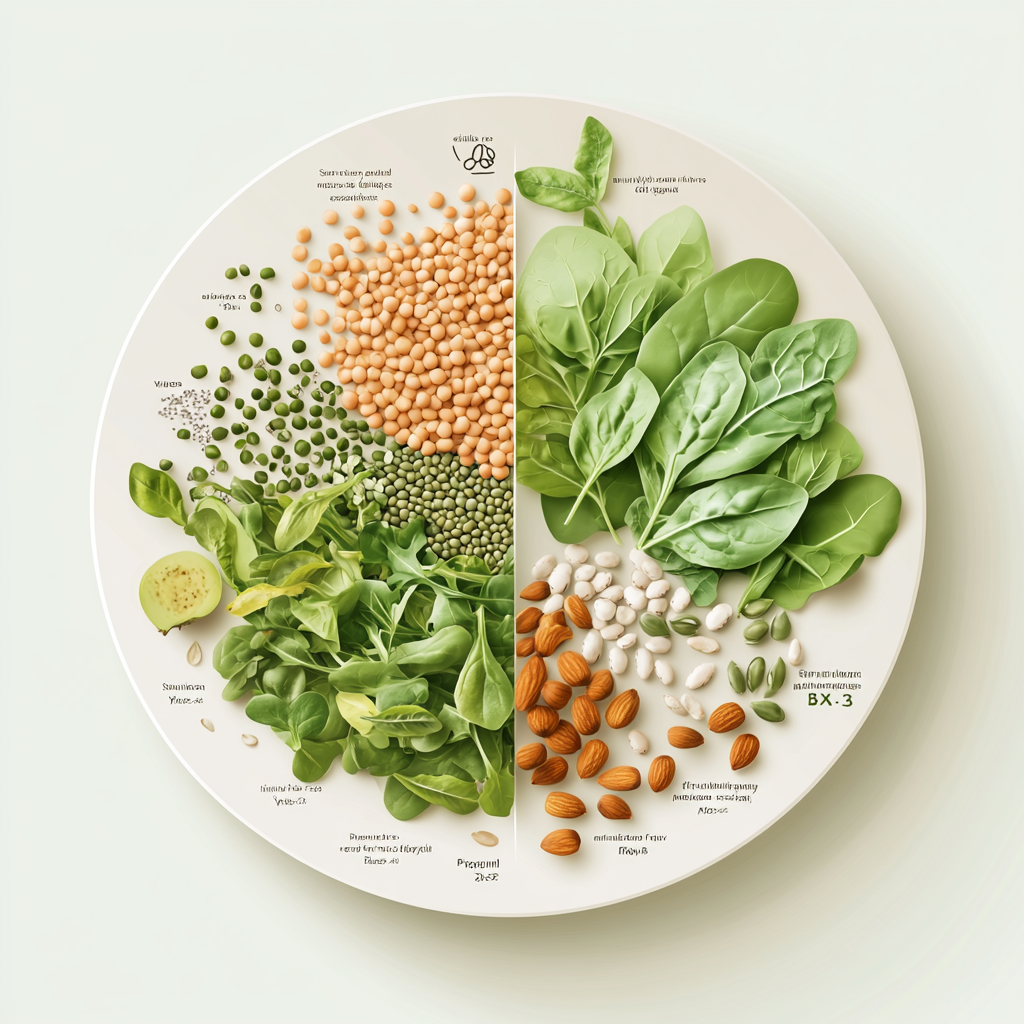 Supplements can also provide a reliable safety net, especially for nutrients like Vitamin B12, Vitamin D, and Omega-3.
Supplements can also provide a reliable safety net, especially for nutrients like Vitamin B12, Vitamin D, and Omega-3.
Way to understand deficiency symptoms
Nutritional deficiency develops very slowly but if it is not noticed in time, it causes serious health risks later on. Here are some common risks we can look out for:
Vitamin B12 Deficiency: memoey issues, tingling in hands and Fatigue.
Vitamin D Deficiency : Bone pain, muscle weakness, or frequent illness.
Iron Deficiency : Pale skin, shortness of breath, or dizziness.
Zinc Deficiency: Slow wound healing, hair loss, or decreased immunity.
Addressing Deficiencies:
Increase intake of nutrient-rich or fortified foods.
Consult a healthcare provider for blood tests and consider supplements if necessary.
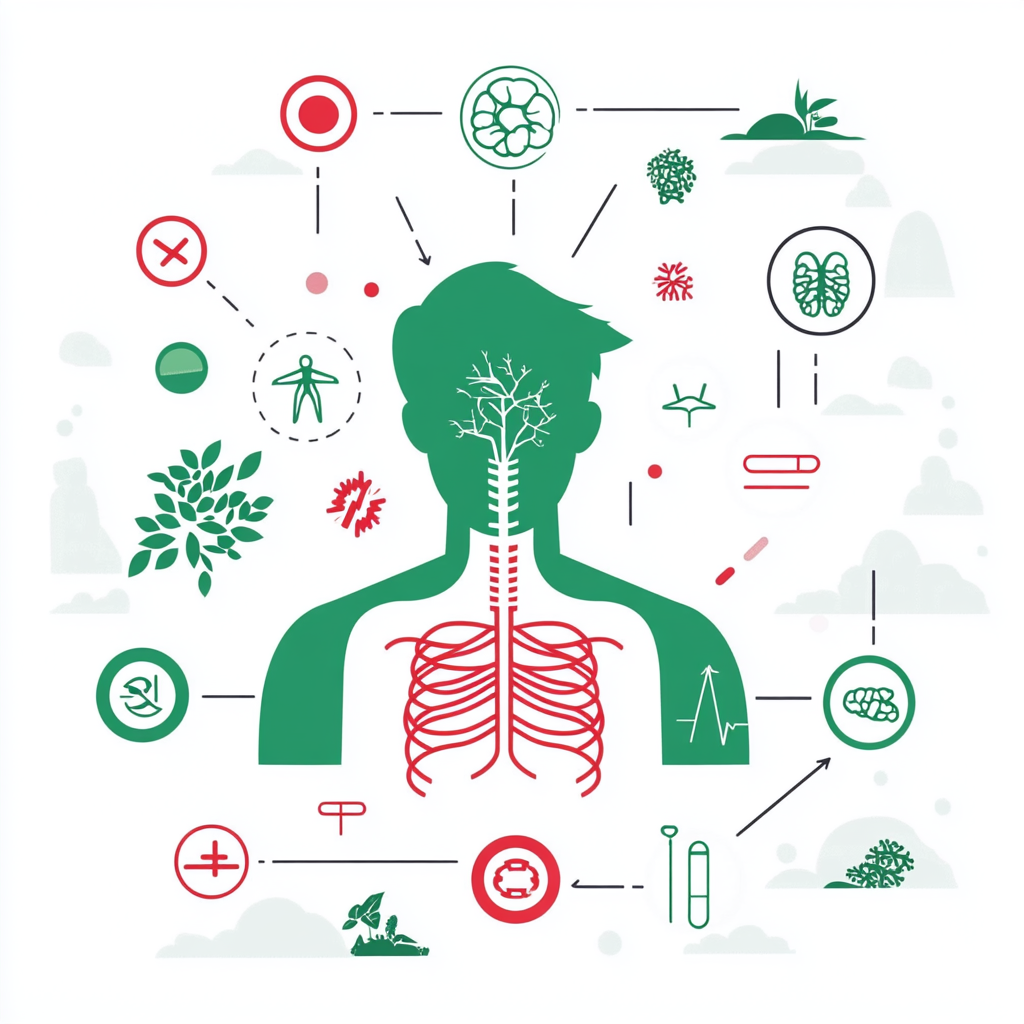
Tips for a Balanced Vegan Diet
1. Meal Planning
Plan meals with variety and nutrient density in mind. Include legumes, grains, vegetables, and healthy fats in every meal.
2. Food Pairing for Better Absorption
Combine iron-rich foods with Vitamin C sources for better iron absorption.
Include fats (avocado, olive oil) to enhance fat-soluble vitamin uptake (A, D, E, K).
3. Stay Consistent with Fortified Foods
Incorporate fortified plant milk, cereals, and nutritional yeast regularly to ensure sufficient Vitamin B12, D, and calcium intake.
4. Monitor Your Nutrition
Use apps or tools to track nutrient intake, and schedule periodic blood tests to check levels of critical nutrients like Vitamin B12, iron, and Vitamin D.
A balanced vegan diet is achievable with knowledge, planning, and mindful choices. By prioritizing nutrient-dense foods, utilizing fortified options, and supplementing when necessary, you can maintain optimal health and vitality. Embrace the variety and creativity that plant-based eating offers while ensuring you’re meeting your body’s needs. With the right approach, thriving as a vegan is not only possible but incredibly rewarding.
